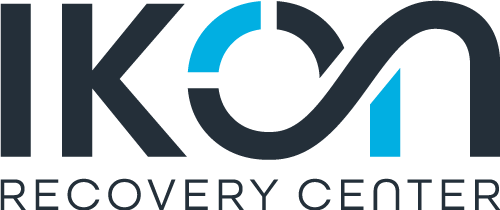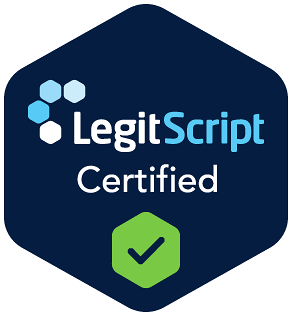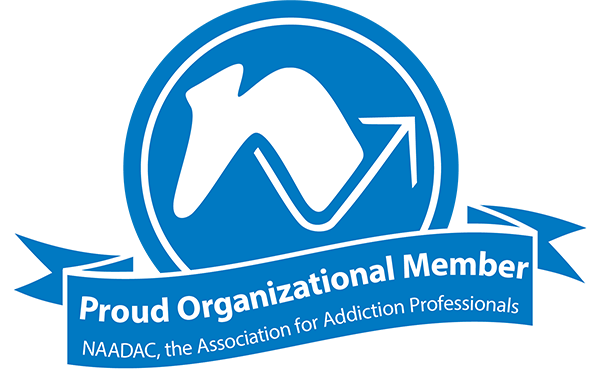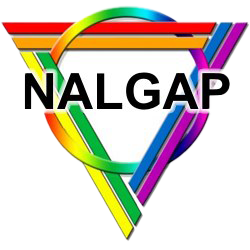Addiction Therapies
at Ikon
Treatment Modalities For Recovery
Having access to an array of specialized and evidence-based treatments that align with your distinct needs is vital for a successful recovery journey.
At Ikon Recovery Center, our commitment to delivering optimal care is reflected in our individualized approach, ensuring that you receive personalized and effective interventions for long-lasting wellness and sustainable recovery.
We understand that your journey is inherently unique. In order to meet the demands of your recovery, our therapies and interventions are meticulously designed to address your specific challenges.
Our dedicated and passionate team is devoted to supporting you every step of the way, helping you to rediscover your resilience and live a life that’s filled with meaning.
HOLISTIC RECOVERY PROGRAMS FOR EVERY SITUATION
Comprehensive Addiction Treatment For Sustainable and Lasting Recovery
Ikon’s approach is tailored to address each dimension of addiction, offering personalized programs to meet unique client needs. With various levels of care, we accommodate individuals with professional or educational commitments, providing comprehensive support for holistic recovery.
As a leader in addiction treatment, Ikon is committed to providing a diverse range of therapeutic modalities that align with the evolving landscape of recovery. Due to our dedication to innovation, our goal is to set new standards in treatment.
We accomplish this by offering progressive and customized approaches that cater to the dynamic nature of their wellness journey. Discover how Ikon Recovery can guide you or your loved one on the path to recovery through specialized treatments and proven therapies today.
Cognitive Behavioral Therapy (CBT)
Cognitive Behavioral Therapy (CBT) is one of the most-researched therapies in the world.[1] CBT acknowledges that distorted thinking fuels addictive behaviors and endeavors to reshape these patterns, helping you to recognize triggers, develop coping strategies, and acquire new skills.
CBT has been proven effective for several concerns, including anxiety, depression, substance abuse, and eating disorders. Typically comprising brief, goal-focused sessions lasting 45 to 60 minutes, CBT is adaptable to various clinical settings.
Dialectical Behavioral Therapy (DBT)
Dialectical Behavioral Therapy (DBT) is a structured, evidence-based treatment focusing on building emotional management skills and enhancing resilience.[2] Rooted in cognitive behavioral therapy principles, DBT is widely adaptable to address various mental health and addiction issues.
Integrating the acceptance of difficulties with behavioral change, DBT can be utilized in both individual and group settings, making it a valuable resource for individuals seeking personalized and effective strategies for long-term well-being and recovery.
Motivational Interviewing (MI)
Motivational Interviewing (MI) serves as a counseling approach dedicated to evoking and reinforcing motivation and commitment to making positive changes.[3]
MI therapy acknowledges the ambivalence individuals may feel toward behavioral changes, aiming to amplify intrinsic motivations for enduring, positive transformations. Through collaborative conversations, ambivalence is explored, coping strategies are developed, and a path toward sustainable change is forged.
Acceptance and Commitment Therapy (ACT)
Acceptance and Commitment Therapy (ACT) encourages embracing the complete spectrum of emotions rather than avoiding or altering them.[4] With a focus on promoting psychological flexibility, ACT proves beneficial for individuals grappling with anxiety, depression, chronic stress, and addiction issues. By nurturing acceptance of emotions and thoughts, individuals can align their actions with values, pursuing meaningful goals.
Drawing from core principles of cognitive behavioral therapy, ACT is highly adaptable for addiction and co-occurring treatments.
Interpersonal Psychotherapy (IPT)
Interpersonal Psychotherapy (IPT), a time-limited and evidence-based treatment, concentrates on resolving relational issues.[5] Originating in the 1970s as a treatment for depression, IPT has evolved to address various psychological and addiction concerns.
IPT can be beneficial for individuals aiming to mend relationships, contending that such efforts can alleviate psychological symptoms and enhance recovery.
Family Therapy
Family therapy is a psychotherapeutic approach centered on enhancing communication and resolving conflicts within the family unit.[6] This collaborative process involves family members working together to address issues, foster understanding, and instigate positive changes in their relationships.
Family therapy can be advantageous in navigating various challenges in the recovery process, such as communication breakdowns and conflicts. In the context of addiction, family counseling focuses on comprehending the impact of substance use and mental health challenges within the family dynamic.
Transcranial Magnetic Stimulation (TMS) Therapy
Transcranial magnetic stimulation therapy (TMS) is a non-invasive medical procedure used for various mental health and addiction concerns.[7] TMS employs a magnetic field to stimulate nerve cells, influencing the brain’s natural electrical activity.
First developed in the mid-1980s, TMS therapy has FDA approval for treating major depressive disorder, treatment-resistant depression, obsessive-compulsive disorder, smoking cessation, and migraines.
Art Therapy
Art therapy employs the creative process to enhance mental, emotional, and physical well-being.[8] Using diverse art materials and techniques like drawing, painting, sculpting, or collage art therapy facilitates self-expression and communication for healing.
In the context of addiction, art therapy aids individuals in exploring and comprehending their emotions through creative avenues. Adaptable across settings and populations, art therapy is versatile and has applications in treating various conditions. The activities involved can range from drawing and painting to sculpture and more.
Yoga Therapy
Yoga therapy takes a holistic mind-body approach to improve physical, emotional, and mental well-being. By incorporating movement, mindfulness, meditation, and breathing exercises, yoga therapy promotes relaxation, alleviates stress, and complements other treatment components.[9]
By seeking to foster a mind-body connection, yoga therapy seeks to provide you with the tools to better manage stress, a common trigger for relapse. As part of a comprehensive treatment plan, yoga therapy contributes to the development of coping strategies, promoting sustainable recovery and a balanced, healthy lifestyle
Music Therapy
Music therapy harnesses the potency of music to address physical, emotional, cognitive, and social needs.[10] Music therapists employ diverse musical activities like listening, singing, playing instruments, and composing to assist you in achieving your therapeutic goals.
Conducted by a trained mental health professional, this creative treatment modality is applicable in various settings, spanning individual to group sessions.
Exercise Therapy
The advantages of exercise and physical fitness are extensively documented, and incorporating exercise into addiction recovery can significantly contribute to your overall well-being.[11]
Movement has always been integral to the human experience, and incorporating it into your recovery can yield benefits such as improved mood regulation, heightened self-esteem, and a reinforced sense of purpose.
Regular physical activity not only aids in restoring physical health but also serves as a potent tool for managing stress, a prevalent trigger for relapse and substance use.
Frequently Asked Questions About Addiction Treatment
What are the benefits of holistic treatment for addiction?
Holistic treatment for addiction addresses the individual as a whole, incorporating physical, mental, and emotional well-being. By integrating various therapeutic modalities such as nutrition, mindfulness, and alternative therapies, holistic approaches aim to promote overall health, resilience, and sustainable recovery, providing a comprehensive foundation for individuals seeking recovery.
What does recovery mean?
Recovery, in the context of addiction, refers to the ongoing process of achieving and maintaining a healthier and more fulfilling life after experiencing substance use issues. It encompasses physical, mental, and social well-being, emphasizing personal growth, sobriety, and improved quality of life. Recovery is a highly individualized journey, and its meaning may vary from person to person, highlighting the importance of personalized and alternative approaches to treatment.
What are some signs of addiction?
Signs of addiction can vary but often include changes in behavior, increased tolerance (to a substance), withdrawal symptoms, neglect of responsibilities, and strained relationships. Physical symptoms, altered mood, and a persistent desire to use substances despite negative consequences may also be indicative. Recognizing these signs is crucial for early intervention and seeking appropriate alternative treatments.
How can people find out about addiction treatment in their area?
Individuals seeking addiction treatment can start by researching local treatment centers, contacting healthcare providers, or reaching out to community resources. Online directories, helplines, and support groups can also provide valuable information. Seeking recommendations from friends, family, or primary care physicians can guide individuals toward suitable and accessible treatment options.
How can I find a therapist?
Finding a therapist involves several steps, including researching local mental health professionals, checking online directories, or seeking recommendations from healthcare providers. Many therapists also list their services on websites or platforms dedicated to mental health. It’s essential to consider the therapist’s specialization, approach, and compatibility with individual needs to ensure a productive therapeutic relationship.
References:
[1] McHugh, R. K., Hearon, B. A., & Otto, M. W. (2010). Cognitive Behavioral Therapy for Substance Use Disorders. Psychiatric Clinics of North America, 33(3), 511–525. Retrieved from https://doi.org/10.1016/j.psc.2010.04.012 on December 2, 2023
[2] Dimeff, L. A., & Linehan, M. M. (2008). Dialectical Behavior Therapy for Substance Abusers. Addiction Science & Clinical Practice, 4(2), 39–47. Retrieved from https://www.ncbi.nlm.nih.gov/pmc/articles/PMC2797106/ on December 2, 2023
[3] USING MOTIVATIONAL INTERVIEWING IN SUBSTANCE USE DISORDER TREATMENT. (n.d.). Retrieved from https://store.samhsa.gov/sites/default/files/PEP20-02-02-014.pdf on December 3, 2023
[4] Osaji, J., Ojimba, C., & Ahmed, S. (2020). The Use of Acceptance and Commitment Therapy in Substance Use Disorders: A Review of Literature. Journal of Clinical Medicine Research, 12(10), 629–633. Retrieved from https://doi.org/10.14740/jocmr4311 on December 4, 2023
[5] Gamble, S. A., Talbot, N. L., Cashman-Brown, S. M., He, H., Poleshuck, E. L., Connors, G. J., & Conner, K. R. (2013). A Pilot Study of Interpersonal Psychotherapy (IPT) for Alcohol Dependent Women with Co-occurring Major Depression. Substance Abuse : Official Publication of the Association for Medical Education and Research in Substance Abuse, 34(3), 233–241. Retrieved from https://doi.org/10.1080/08897077.2012.746950 on December 4, 2023
[6] Information, N. C. for B., Pike, U. S. N. L. of M. 8600 R., MD, B., & Usa, 20894. (2020). Chapter 3—Family Counseling Approaches. In www.ncbi.nlm.nih.gov. Substance Abuse and Mental Health Services Administration (US). Retrieved from https://www.ncbi.nlm.nih.gov/books/NBK571088/ on December 4, 2023
[7] Gorelick, D. A., Zangen, A., & George, M. S. (2014). Transcranial magnetic stimulation in the treatment of substance addiction. Annals of the New York Academy of Sciences, n/a-n/a. https://doi.org/10.1111/nyas.12479 on December 4, 2023
[8] Aletraris, L., Paino, M., Edmond, M. B., Roman, P. M., & Bride, B. E. (2014). The Use of Art and Music Therapy in Substance Abuse Treatment Programs. Journal of Addictions Nursing, 25(4), 190–196. Retrieved from https://doi.org/10.1097/jan.0000000000000048 on December 4, 2023
[9] Kuppili, P. P., Parmar, A., Gupta, A., & Balhara, Y. P. S. (2018). Role of Yoga in Management of Substance-use Disorders: A Narrative Review. Journal of Neurosciences in Rural Practice, 9(1), 117–122. Retrieved from https://doi.org/10.4103/jnrp.jnrp_243_17 on December 4, 2023
[10] Ghetti, C., Chen, X.-J., Fachner, J., & Gold, C. (2017). Music therapy for people with substance use disorders. Cochrane Database of Systematic Reviews. Retrieved from https://doi.org/10.1002/14651858.cd012576 on December 4, 2023
[11] Smith, M. A., & Lynch, W. J. (2012). Exercise as a Potential Treatment for Drug Abuse: Evidence from Preclinical Studies. Frontiers in Psychiatry, 2. Retrieved from https://doi.org/10.3389/fpsyt.2011.00082 on December 4, 2023
